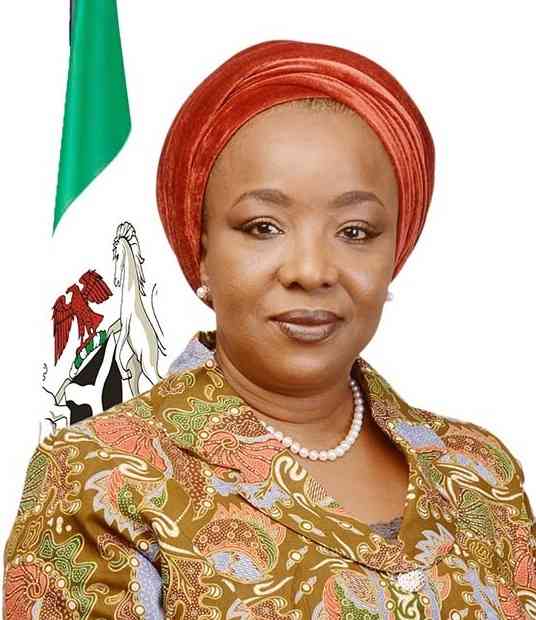
The Minister of State for Environment, Barr. Sharon Ikeazor, has said 60 per cent or more of all households in Nigeria will still be cooking with traditional biomass by 2030 if Nigeria fails to review her existing policies to promote clean cooking.
Speaking at the 2021 Nigeria Clean Cooking Forum themed – ‘Clean cooking energy for all in Nigeria – achieving the Nationally Determined Contributions (NDC) targets on clean cooking’ in Abuja, she pointed out that over 70 per cent of Nigeria’s population relies solely on wood as fuel to meet their energy needs for cooking and heating.
Saying dependency on biomass for cooking and or heating purposes increases pressure on local natural resources, the minister averred [that] it poses a threat to the health and safety of end-users, mainly women often accompanied by their children, stressing [that] more than 90,000 Nigerian women and children die annually from firewood smoke, which also causes a deforestation equivalent of 5.4Mt of CO2 (GFW) resulting from unsustainable wood harvesting, thereby reducing carbon uptake by forests.
“Nigeria’s residential sector contributes over 50 per cent of national total emissions of Green House Gases. The use of cleaner, more modern cookstoves and fuels can dramatically reduce exposure to harmful smoke, thereby improving the health of rural women, creating wealth, provide myriad economic opportunities for Nigerians and has important environmental and climate benefits,” she added.
Ikeazor said the forum, organized by the International Centre for Energy, Environment and Development (ICEED), Nigerian Alliance for Clean Cookstoves (NACC), the Heinrich Boell Stiftung and the Deutsche Gesellschaft für Internationale Zusammenarbeit (GIZ) aimed to discuss the implementation plans towards achieving the clean cooking targets in the NDC, take stock of the current status of clean cooking activities in the country, review existing policies and practices that relate to clean cooking in Nigeria.
According to her, the Federal Ministry of Environment has supported the implementation of programmes on clean cooking, to help the nation reduce her GHG emissions and also boost green growth over the years.
She stressed the Federal Government was striving to meet its NDC obligations by ensuring that Nigerian households convert from the use of inefficient cooking fuels such as fuelwood, charcoal and kerosene to LPG and other efficient cooking fuels.
“That is why we have put together this forum, bringing together policy-makers, civil society organizations, NGOs, the academia, women groups and international partners for all to be well-equipped with the right knowledge and tools to be able to develop strategies and plans that squarely address the issues of clean cooking,” she added.
Ikeazor called on commitments and cooperation from relevant sectors to ensure successful deliberation and accomplishment of the goals of the forum, even as she assured of the ministry’s commitment to integrating the elements of the gathering into its NDC implementation efforts.
In her goodwill message, the Minister of Women Affairs, Dame Pauline Tallen, said the forum to discuss the production, dissemination and the use of cleaner and more efficient stoves and fuels could not have come at a better time than the present when the world is grappling with creating an environment free of pollution to ensure healthy living.
She added that implementation plans towards achieving the clean cooking targets in the NDC and the current status of clean cooking activities, as well as the review of existing policies and practices relating to clean cooking in Nigeria were a welcome idea.
According to her, the use of clean stoves would help eliminate preventable deaths of mothers and children caused by open-cooking fires, particularly in developing and newly industrialised countries like Nigeria.
Tallen stressed that it was imperative, therefore, that stakeholders and government at all levels develop policies and programmes to provide cleaner and more efficient alternatives to traditional biomass.
Speaking exclusively to Science Nigeria, the ICEED executive director, Ewah Eleri, said the forum brought together stakeholders from government, the private sector, development partners and NGOs to deliberate on how to expand access to clean cooking in Nigeria.
Eleri said the focus this year meeting was on Nigeria’s commitment to the Paris Climate Change Agreement and how expansion of access to good cooking practices in Nigeria can help the country meet its climate change obligations, adding that the federal government had already pledged its readiness to develop a clean cooking policy, as well as work towards a bill to promote safe cooking at the National Assembly.
“Concerns over the rising price of cooking gas dominated deliberations in the forum. Participants urged the federal government to ensure that companies producing cooking gas has obligations to supply the domestic market rather than exporting this vital product only for Nigerians to import the same from other countries. As our currency weakens against the dollar the affordability of this product will be compromised.
“One of the key recommendations of the meeting was the need to provide subsidies for rural dwellers to acquire efficient wood stoves. While cooking gas should be promoted in urban areas, there is the need for support to the rural poor to use wood more efficiently and to save the health of women and children. Already Nigeria records the highest number deaths in Africa as a result of smoke from the kitchen,” he added.


